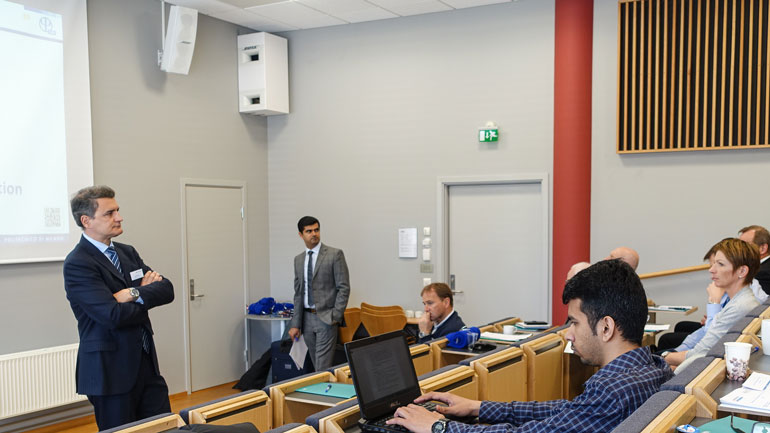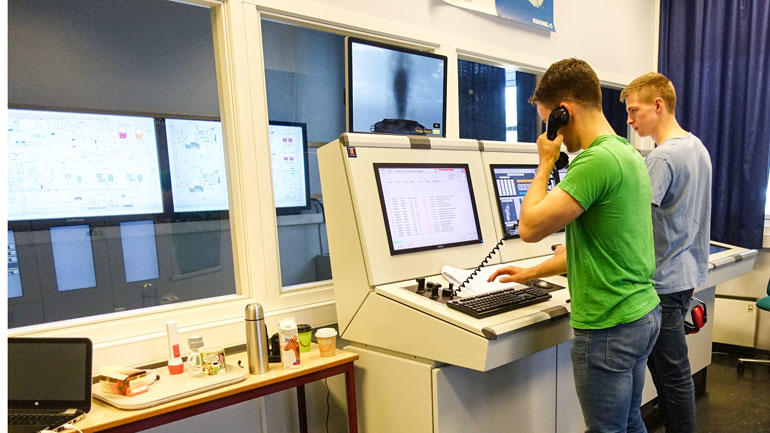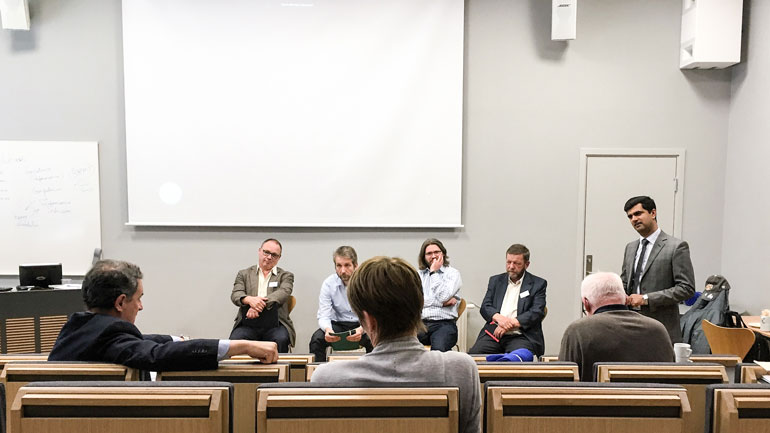- The industrial and technological revolution has brought increased automation and engineering advancement over the past few decades, and the ways human beings interact with their environment have dramatically changed compared with three decades before. New technologies, automated devices, and computerized systems have formulated an era of new systems - systems that are high in dynamic, social, and technical components, and features efficient interactions among the components, says associate professor at HSN Salman Nazir, after conducting the the 3rd workshop for Training and Assessment at campus Vestfold in May 2016.
In his view these new systems have improved the overall productivity and efficiency of operations, transportation, and production. However, the development has also significantly increased the complexity and interdependencies of the system, altered the work of industrial operators and brought new challenges to individuals as well as to teams.

- The roles and goals of human beings within the new systems have transformed, from direct manipulation and control to supervisory activities involving the supervision from centralized control rooms, says Dr. Nazir.
He says the impact of training and competence development activities has been well studied, with research consistently indicates its significance on the improvement of adaptability, productivity, efficiency as well as the overall safety.
- However, several questions are still unanswered; for instance, how the training methods were designed in first place, what is the transferability of training from the sophisticated training simulators, what should be the frequency of re-training, how to objectively analyze the performance assessment, and so on, says Nazir.
Not just a workshop
He explains that there is a need for cooperation and mutual understanding among the academia/researchers and practitioners, and that the series of workshops are aimed at long-term cooperation between academics and practitioners.
Hope is that they can bridge the existing gap, and prove to be the critical link missing required for innovation and improvement in Training and Assessment.
The last two workshops have resulted in new collaboration and submissions of three project applications:
- With Institute for Energy Technology IFE from Oslofjord funding.
- With Ruhr University Bochum , Germany from Research Council of Norway.
- From MARKOM 2020 for the series of workshops.
- This third workshop proved to be even more successful than the previous two workshops with similar agendas, says Salman Nazir.
Academics and industry come together
Several challenges in the world of training within maritime industries were identified, with reflection towards possible solutions. The personnel from industries, for instance, Stig-Einar Wiggen from Kongsberg Maritime AS, John Lars Syversen from Hucon Global AS and Sturle Danielsen Tvedt from Simsea facilitated the discussions.
They provided their insights and experiences, which contributed to converging solutions among the panel at the last workshop.
- The workshop was aimed on the substance, and not on the number of attendance. The goal of the workshop was clear from the inception – to exchange knowledge among researchers and practitioners, foster collaboration among participants, to highlight recent challenges and to reach some possible solutions in the world of training and performance assessment, says Salman Nazir.
He says he is astonished by how ideas flow when different expertise is put in one room, and focus towards finding solutions.
- The continuous evolution of sociotechnical systems (mainly maritime) presents new challenges to the human operator, and it is therefore necessary to consider the rapid change to perform consistently and safely. This is the main motivation behind the workshop, and the results of this work will be important to maintaining safety at sea, says Nazir.
Understanding and dialogue
The workshops have several potential outcomes.
For instance, the Training and Assessment Research Group (led by Salman Nazir) at Department of Maritime Technology and Innovation (MTDI), has gained more recognition and improved visibility because of the workshops.
There is also an increased understanding and dialogue between the academics and operators, and the workshops can provide the platform for long-term collaborations.
- As it has been observed in the past, the lack of an interaction between academics and practitioners, have refrained the implementation of tools/solutions from one domain to the other. The cooperation between MTDI and KONGSBERG is reinforced with the workshop, and collaborations are under the pipe line with World Maritime University, University Hospital & Institute of Clinical Medicine, and Hucon Global says Salman Nazir enthusiastically.

